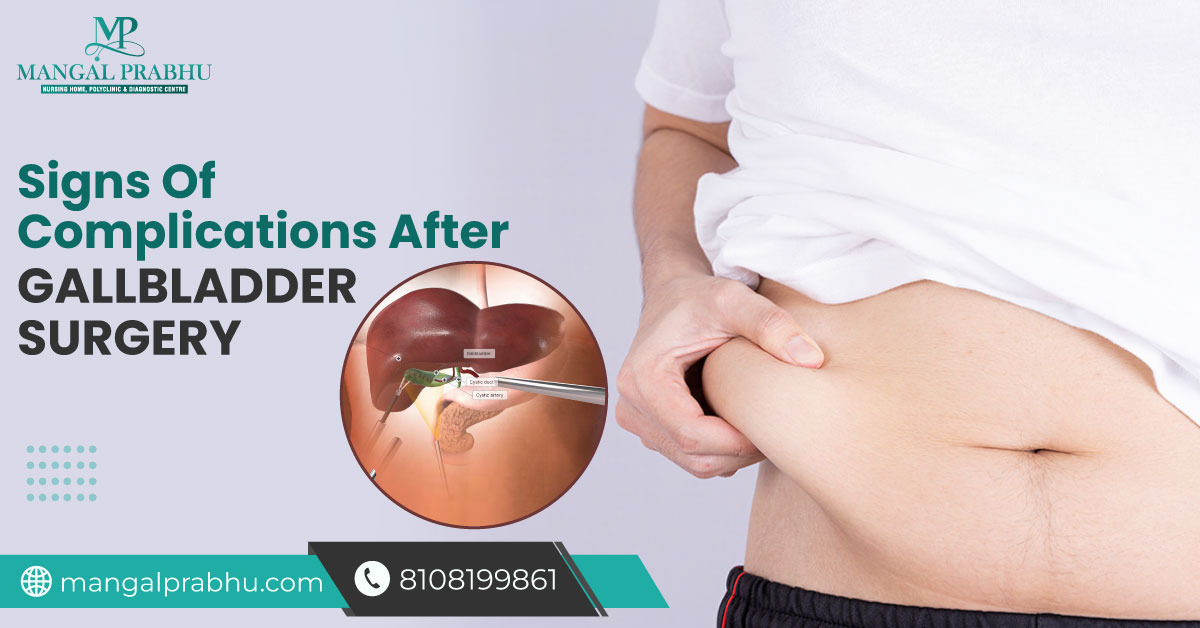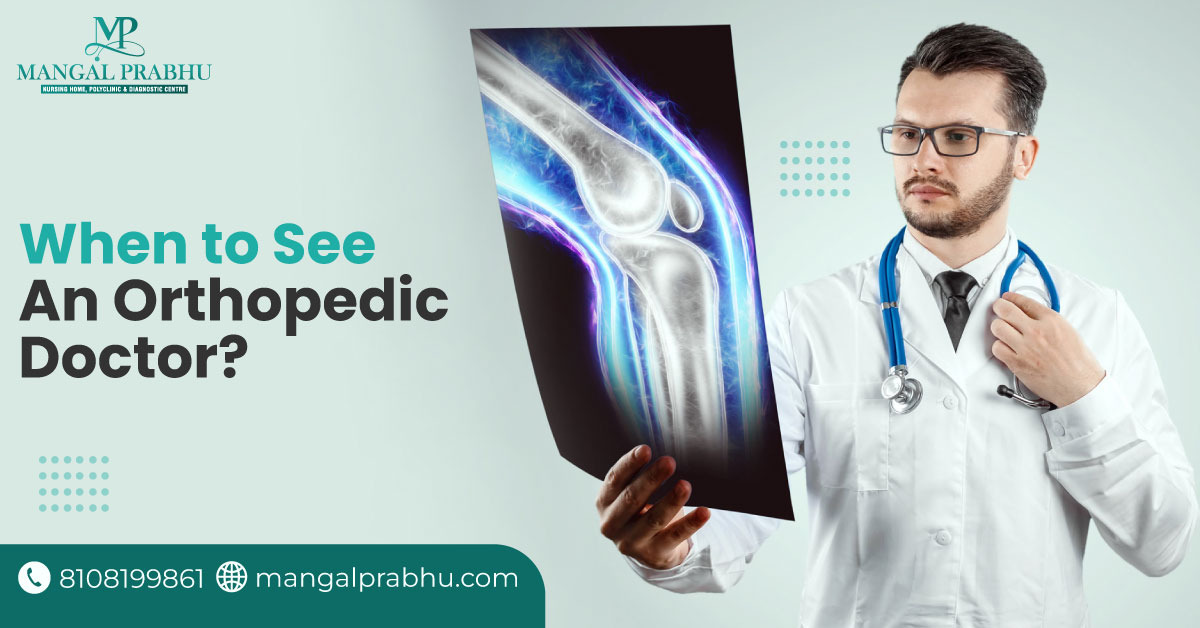
Difference Between Gynecologist and Obstetrician
I. Introduction
Women’s reproductive health is like the conductor orchestrating their participation in the workforce. Reproductive health services are the catalysts propelling women towards empowerment and providing healthy and safe well-being. In the grand journey into the realm of women’s health, an individual needs to unravel the intricacies of the contributed trio: OB/GYN, obstetrics, and gynecology. Although the terms might sound like a medical alphabet jumble, each holds a unique role in addressing the varied health needs of women. Get ready for an immersive journey into the domains of welcoming new life and safeguarding the enduring reproductive health of women with the best Maternity Hospital in Navi Mumbai like Mangal Prabhu Hospital.
II. What is a Gynecologist?
Gynecologists emerge from their educational crucible with a keen sense of preventive care, diagnostic skills, and the power to combat reproductive disorders like cancers and pelvic perils. Armed with an arsenal of knowledge on family planning and contraception, they’re the trusty sidekicks ensuring women’s reproductive well-being through every twist and turn. They are warriors against issues like irregular menstruation, infections, cancers, and a plethora of other reproductive challenges. Regular screenings and timely interventions with gynecologists ensure that potential threats are detected early, boosting the chances of triumphant recovery.
III. What is an Obstetrician?
With a similar origin story of education and residency, these conductors specialize in the spectacle of pregnancy and childbirth. They empower women to make informed choices, orchestrating the symphony of when and how to expand their families. Obstetricians dazzle in the realm of high-stakes pregnancies, fetal crescendos, and the dramatic outcome of childbirth. But their role doesn’t stop there; they continue the postpartum encore, ensuring the well-being of both mother and newborn.
Also Read: When to Consult a Doctor During Pregnancy?
IV. Similarities and Differences
Both gynecologists and obstetricians join forces in championing the cause of regular check-ups. Gynecologists mostly provide treatment for various reproductive issues and allow routine screenings, while obstetricians emphasize the importance of prenatal harmonies for the health of both mother and baby. Both specializations help ensure women stay in sync with their bodies at every stage. This dynamic duo ensures that women receive the specialized care they deserve, adapting their powers to the unique needs of each stage. In cases of complications, both specializations team-up becomes even more pronounced for their patients.
V. When to See a Gynecologist vs. Obstetrician
When you suffer from any reproductive systems enigmas, such as ovarian conundrums, uterine puzzles, endometriosis mysteries, menstrual issues, or sexual health, or you need consultation for contraceptives, then find solutions with a Gynecologist in Navi Mumbai at Mangal Prabhu Hospital. For those venturing into fertility expeditions or seeking assistance with family planning strategies, postpartum pampering, labor, and delivery, your obstetrician is the guide offering evaluations, fertility treatments, and a roadmap to your desired destination.
VI. Conclusion
By understanding the nuances of their roles, women can embark on a proactive journey towards well-being, armed with knowledge and help in taking steps to manage their reproductive health at every stage of life. Whether it’s a gynecological escapade or an obstetrical odyssey, rest assured that these healthcare providers stand ready to empower and uplift every woman, turning each chapter into a tale of triumph and resilience.

What Not to Do After ACL Surgery?
I. Introduction
The ACL is the knee’s guardian, ensuring stability and support. When this guardian gets injured, ACL surgery swoops in to save the day, restoring function and preventing long-term outcomes for the patient. ACL injury can also develop life-threatening and immobility issues, thus this surgical procedure helps in eliminating these risks. ACL surgery also helps in improving stability, reducing the risk of future knee injuries, reducing pain, and swelling, and preventing chronic issues. Thus an individual must consult with the best ACL reconstruction doctors in Navi Mumbai at Mangal Prabhu Hospital to avoid risk associated with ACL injury.
II. Physical Activities to Avoid
After ACL surgery an individual needs to stay very conscious about their knee as straining the joint during this period may hinder the healing process. Thus, an individual must hold off on running, jumping, and jogging for a certain period; there’ll be plenty of time for that triumphant return later. These high-impact activities can stress the healing ligament. Give your knee rest, advance treatment, and avoid high-contact sports until it gets back to its full strength. It would also be best to avoid heavy weightlifting and intense exercise that might transform your knee’s healing period into an injury period. However, you can also adopt lighter weights and controlled strength training to stay on the track.
III. Neglecting Rehabilitation Exercises
Besides rest and avoiding physical activities, an individual also needs to consider various things during their recovery period after ACL surgery. Just like medicines are important for quick recovery, rehabilitation programs also act as a knee training camp. Rehabilitation exercise is a power move, aimed at defeating muscle atrophy and joint instability. Each exercise helps in improving the knee’s efficiency and acts as a shield for various complications. Rehabilitation program as a personal trainer, customizing workouts for your knee’s unique needs and progress. Skipping these customized workouts may hinder progress, slow down, and setbacks become more likely. Neglecting rehab also weakens the knee’s defense against the forces of delayed recovery.
Also Read: How to Sleep After ACL Surgery?
IV. Ignoring Pain and Swelling
Pain and swelling are warning signs of complications associated with knees. They’re signals from your body, telling you things are in motion. Keep a vigilant eye, and if the pain and swelling stay persistent and intense, then let your healthcare provider know immediately so they can offer the right treatment and avoid the risk of complications.
V. Returning to Normal Activities Too Soon
Impatience during your recovery period may lead to severe complications. The knee needs proper rest and treatment for a certain period after ACL reconstruction surgery in Navi Mumbai. Returning to normal activities too soon increases the risk of further injuries, infection, delayed recovery, and other long-term issues. Be a wise patient – follow the timeline, resist the urge, and let your knee heal properly, so you can go back to your normal activities without any hassle.
VII. Conclusion
During your ACL surgery recovery, each step is crucial. Evade the high-impact exercise, adopt the rehab exercises, keep an eye on the pain and swelling, and, most importantly, let your knee take its time to heal so you can get a better recovery. Patience and commitment are essential, ensuring a triumphant return to normalcy. Always consult with the healthcare provider at Mangal Prabhu Hospital for personalized guidance throughout this epic recovery journey.

Signs Of Complications After Gallbladder Surgery
The best gallbladder surgeon in Navi Mumbai at Mangal Prabhu Hospital removes gallbladder from the body which helps in eliminating the pain associated with gallstones. Besides relieving the pain of gallstones, it also helps in reducing various issues. However, life without a gallbladder does not change much but sometimes it would be best for an individual to learn the signs of complications associated with this treatment.
As every surgical procedure has some risk, Gallbladder surgery may also lead to some common and severe complications. Thus, recognizing the signs of complications after this surgery is essential and helps in ensuring a smooth recovery and reducing unforeseen medical issues. Therefore, this guide provides a quick insight into common complications associated with post-gallbladder surgery.
Common complications after gallbladder surgery
Some common complications that individuals may encounter post-gallbladder surgery may include:
1) Infection
Postoperative convalescence can resemble a controlled construction site, yet the potential for infections persists. Indicators such as erythema, edema, and discomfort around the surgical site serve as sentinel manifestations of an unwarranted microbial intrusion demanding prompt attention.
2) Bile duct injury
Analogous to a backstage malfunction, inadvertent bile duct injury during surgery can result in symptoms of bile leakage, abdominal pain, and jaundice, signaling a deviation from the anticipated convalescence trajectory.
3) Bleeding
Though a certain degree of drama is inherent in any surgical procedure, excessive bleeding merits heightened attention. Increased pain, unexpected bruising, or feelings of weakness act as signals, warranting investigation into potential complications.
4) Bowel injury
The adjacent bowels, susceptible to sensitivity, may experience disruption during surgery, leading to abdominal discomfort and triggering internal alarms in rare instances.
Also Read: A Comprehensive Guide To Gallbladder Stone Removal
Signs of complications after gallbladder surgery
i) Fever and chills
An individual may experience increased body temperature, chills, and fever which may show signs of infection.
ii) Severe abdominal pain
Some people may experience intense and persistent abdominal pain which may indicate complications with bile duct injury or internal bleeding.
iii) Jaundice
The emergence of a yellowish tint in the skin and eyes suggests a noteworthy development. Jaundice indicates potential complications and mandates prompt medical attention.
iv) Persistent nausea and vomiting
While postoperative digestive adjustments are expected, persistent nausea and vomiting suggest lingering complications, potentially in the form of infection or bile leakage.
When to seek medical attention
a) Immediate medical attention
If you find yourself entangled in the dissonance of chest pain, abdominal discomfort, or the breathless whispers of difficulty breathing, don’t hesitate—rush to the virtuosos at Mangal Prabhu Hospital for unparalleled gall bladder stones treatment in Navi Mumbai. Swift, emergency medical care isn’t just an option; it’s the overture to safeguarding your well-being and sidestepping potential risks.
b) Contacting the surgeon
If you find a hint of jaundice, fever, or unwelcome abdominal discomfort, then reach out to your surgeon. By consulting with your surgeon promptly, you can take immediate action, ensuring that any nuances in your recovery are met with expert precision.
Conclusion
As you navigate the post-gallbladder surgery landscape, being attuned to the signals your body sends is like having a backstage pass to your recovery. With a keen eye for signs of complications and prompt response, you can ensure better medical attention for a successful postoperative journey.

What Happens During Menopause?
What is Menopause?
Menopause marks the end of your menstrual period or the reproductive age. A woman can’t get pregnant after menopause. It happens when you have not had your period for 12 months in a row. There’s no fixed age for menopause, although most women tend to experience it between 45 and 51. It’s a natural aging process. However, the symptoms of menopause, especially during the perimenopause period, can take a toll on your physical and emotional health. It’s important to see a gynecologist in Navi Mumbai if you experience hot flashes, excess bleeding, pelvic pain, and other symptoms.
Common Symptoms of Menopause
Perimenopause is a period where a woman’s body prepares to enter menopause. During this phase, you might experience many physical and emotional symptoms, including:
- Hot flashes
- Sudden urge to urinate
- Inability to hold pee
- Vaginal dryness
- Difficulty sleeping
- Chills
- Weight gain
- Irregular periods
- Heavy bleeding
- Sudden shifts in mood
- Hair thinning
Symptoms can vary for each woman, although irregular periods are quite common in all.
Treatment Options for Menopause
Menopause doesn’t need treatment, but you can consider hormonal therapies and medication to get relief from the symptoms disrupting your life.
i) Hormone Therapy:
The amount of estrogen and progesterone (the two vital reproductive hormones in women) is reduced significantly as you enter menopause. This might cause vaginal dryness and hot flashes. Hormone therapy can restore and balance the levels of these hormones and alleviate the symptoms.
ii) Prescription Medication:
Non-hormonal medications for hot flashes, vaginal dryness, and mood swings can help manage your perimenopause symptoms.
Also Read: What to Expect Before and After Ovarian Cyst Surgery?
Lifestyle Changes to Help Manage Menopause
Menopause treatment in Navi Mumbai is needed if your lifestyle and dietary changes do not produce any results. Here’s what you can try in the meantime.
a) Diet:
Limit caffeine intake and avoid spicy food to manage hot flashes. You should add vitamin-rich foods to your diet to get the required nutrients. Add lentils, chickpeas, grains, soybeans, vegetables, and fruits to your diet.
b) Exercise:
Meditation and Yoga can help you with mental and physical issues with menopause. Regular exercising improves your sleep and reduces anxiety related to menopause.
c) Avoid Triggers:
Certain activities might trigger your symptoms and make them worse. For instance, your weight or smoking habits can worsen your hot flashes. Identify these triggers to manage your symptoms.
Potential Complications and Risks of Menopause
The risk of certain medical issues increases after menopause. You should watch out for the following:
A) Heart Diseases:
A sudden drop in estrogen levels in your body puts you at an increased risk of cardiovascular diseases. Check your cholesterol levels and blood pressure regularly to prevent any heart-related complications.
B) Urinary Incontinence:
You might experience a sudden urge to pee and the inability to hold it. Women after menopause might also experience urine leaks when coughing, sneezing, laughing, etc. Any physical jerk can lead to urge incontinence.
C) Osteoporosis:
Postmenopausal women are at a higher risk of fractures of the hip and knee joints, as their bones become weak.
Lastly, you might experience some discomfort during sexual intercourse because of the vaginal dryness. Speak with your doctor if you experience any of these post-menopausal complications.

Symptoms of Measles in Adults
Measles, once considered a childhood illness, can affect adults, too, leading to complications if not promptly addressed. Understanding the symptoms is crucial for early detection and effective treatment. In this informative guide, you will explore the various symptoms of measles in adults, shedding light on the importance of awareness, prevention, and seeking timely medical assistance, possibly from a trusted general physician in Navi Mumbai.
Symptoms of Measles in Adults
Measles symptoms in adults can vary but often mirror those in children. Recognizing these signs is imperative for prompt intervention. Key symptoms include:
i) Fever:
A high fever is a common initial symptom, often rising rapidly after the onset of infection. Monitoring body temperature is crucial for timely intervention and fever management.
ii) Cough:
Measles typically triggers a persistent cough, which can be distressing for adults. Identifying the cough’s association with measles is vital for accurate diagnosis.
iii) Runny Nose:
Adults with measles may experience a runny or congested nose. This symptom can help differentiate measles from common colds or allergies.
iv) Rash:
The classic measles rash is a distinctive symptom. It usually begins a few days after the initial symptoms, starting as flat red spots and evolving into raised bumpy lesions. The rash often starts on the face and spreads downward, covering the entire body.
v) Photophobia:
Measles can cause increased sensitivity to light, known as photophobia. Adults with measles may find bright lights uncomfortable and prefer dimly lit environments.
Also Read: How is Pneumonia Treated?
vi) Conjunctivitis:
Inflammation of the eyes, or conjunctivitis, is another possible symptom. Adults may experience redness, irritation, and excessive tearing of the eyes.
vii) Sore Throat:
Measles can accompany a sore throat, making swallowing painful. This symptom adds to the overall discomfort experienced by adults with the infection.
Prevention of Measles
Prevention plays a pivotal role in mitigating the complications associated with measles. Two primary and highly effective strategies are integral to minimizing the risk of infection:
A) Vaccination:
Undoubtedly, vaccination stands as the most potent preventive measure against measles. The measles vaccine, often administered as part of the MMR (Measles, Mumps, Rubella) vaccine, has been instrumental in curbing the spread of the virus. Adults who lack a history of measles or haven’t received the MMR vaccine should seriously consider getting vaccinated, especially when residing in high-risk environments or planning international travel. Vaccination safeguards individuals and contributes to community immunity, protecting vulnerable populations who cannot receive the vaccine.
B) Avoiding Exposure:
Measles is notorious for its high contagion through respiratory droplets. To prevent exposure, individuals should exercise caution and adopt preventive practices. Avoiding close contact with individuals diagnosed with measles is imperative. Additionally, practicing good hygiene, such as frequent and thorough handwashing, further diminishes the risk of exposure. By adhering to these preventive measures, individuals can contribute to breaking the transmission chain of measles and protect themselves and their communities from potential outbreaks.
Conclusion
Measles in adults is a serious health concern, emphasizing the need for awareness and preventive measures. With the availability of measles treatment for adults in Navi Mumbai, including reputable healthcare facilities like Mangal Prabhu Hospital, individuals can access timely and effective medical care. Stay informed, prioritize vaccination, and seek prompt medical attention if symptoms arise to ensure the well-being of yourself and those around you.

Difference Between a Superspeciality and a Multispeciality Hospital
Choosing a reliable hospital is often a challenging decision for patients. The two most popular choices are super specialty and multispecialty hospitals. Both offer exceptional treatment facilities, but the difference lies in the range of treatment options available.
Super specialty, for example, is known for treating patients suffering from a specific illness. Multi-specialty hospitals are general hospitals that treat a wide array of illnesses. In this post, we’ll take a look at the differences between multispecialty hospitals in Navi Mumbai and their super specialty counterparts. Let’s get started.
Overview of Superspeciality and Multispeciality Hospital
Super specialty hospitals, as mentioned above, are hospitals specializing in treating a specific kind of illness. These hospitals do not have as many departments as a general hospital, but they are known for professional healthcare experts who have extensive knowledge and experience in treating a specific medical condition. Examples of super specialty hospitals include orthopedic hospitals and cancer hospitals.
Multispecialty hospitals, on the other hand, are general hospitals that involve healthcare providers specializing in different branches of medicine and treating a vast array of illnesses. These hospitals are larger than their super specialty counterparts and have several departments dedicated to different treatment options. For instance, a multi-specialty hospital has a department for oncology, orthopedics, neurology, reproductive, urology, and more.
Also Read: 5 Factors To Consider While Choosing A Right Multispecialty Hospital
Differences Between Superspeciality and Multispeciality Hospital
1) Scope:
Super specialty hospitals are confined to a certain branch of medicine. For example, a cardiac hospital focuses on cardiology patients mainly and has general doctors, surgeons, and other experts from the cardiology department. Multispecialty hospitals provide comprehensive medical care, which covers different illnesses.
2) Patients:
Superspecialty hospitals attract patients diagnosed with a healthcare problem that these hospitals specialize in. Multispecialty hospitals are for all patients, irrespective of their medical condition or the type of treatment they require.
3) Specialization and Facility:
Superspecialty hospitals offer advanced medical care and are equipped with equipment and infrastructure that’s tailored to their specialty. Multi-specialty hospitals cover a diverse range of equipment and staff that’s a mix of general doctors and specialists.
4) Cost:
Superspecialty hospitals are comparatively more expensive than multispecialty because of the specialized care and high-end facilities offered. If you are looking for an affordable hospital in Navi Mumbai, a multispecialty hospital is your best bet.
Which Among Super Specialty and Multispecialty Hospitals is a Good Option?
Both offer an infrastructure that’s tailored to the range of treatments and the branch of medicine the hospital focuses on. A super specialty hospital is recommended for patients diagnosed with a chronic illness or a serious medical condition that requires specialized care from the industry’s top and most experienced healthcare professionals.
Multi-specialty is for the general public experiencing mild issues. These hospitals have different departments for different illnesses and experienced healthcare professionals for each department. However, the level of care you get from a super specialty hospital is much better and advanced, as they have professionals specializing in the specific area of medicine.
That was all about super specialty and multispecialty hospitals. Choose a facility that suits your individual needs and budget.

When to See an Orthopedic Doctor?
What is an Orthopedic Doctor?
Orthopedic health is pivotal in maintaining our overall well-being, ensuring that our bones, joints, and muscles function seamlessly. However, when musculoskeletal issues arise, seeking the expertise of an Orthopedic Doctor in Navi Mumbai becomes imperative.
Orthopedic doctors specialize in diagnosing, treating, and preventing conditions related to the musculoskeletal system. This intricate system comprises bones, joints, muscles, ligaments, and tendons, and any disruptions can lead to discomfort, pain, or restricted mobility.
Common Conditions Treated by Orthopedic Doctors
Orthopedic doctors are trained to address a wide range of musculoskeletal conditions, including:
1) Fractures and Dislocations
Prompt attention to fractures and dislocations is crucial for proper healing and preventing long-term complications.
2) Arthritis
Orthopedic doctors manage various forms of arthritis, such as osteoarthritis and rheumatoid arthritis, providing relief and enhancing joint function.
3) Sports Injuries
Athletes often consult orthopedic doctors to treat sports-related injuries like sprains, strains, and torn ligaments.
4) Back and Neck Pain
Conditions affecting the spine, such as herniated discs or spinal stenosis, are within the purview of orthopedic expertise.
5) Joint Replacement Surgery
Orthopedic surgeons perform joint replacement surgeries, such as knee or hip replacements, to alleviate pain and restore function.
Also Read: Is Orthopedic Surgery Worth it?
When to See an Orthopedic Doctor?
Knowing when to seek the expertise of an orthopedic doctor is crucial for timely intervention and effective treatment. Consultation is recommended in the following scenarios:
a) Persistent Pain or Discomfort
If you experience persistent pain or discomfort in your joints, bones, or muscles, it’s advisable to consult an orthopedic doctor. Ignoring such symptoms may lead to the progression of underlying conditions.
b) Limited Range of Motion
Difficulty moving a joint or experiencing a limited range of motion warrants orthopedic evaluation. It may indicate conditions such as arthritis or ligament injuries.
c) Injury or Trauma
In cases of injuries or trauma to the musculoskeletal system, seeking immediate orthopedic attention is vital. Fractures, dislocations, or severe sprains require professional evaluation and treatment.
d) Joint Deformities
Noticeable joint deformities or abnormalities should not be ignored. Orthopedic doctors can assess and provide appropriate interventions to address such issues.
Diagnostic Tests and Treatments for Orthopedic Conditions
Orthopedic doctors employ various diagnostic tests, including X-rays, MRI scans, and blood tests, to accurately identify musculoskeletal conditions. Treatment modalities range from non-invasive approaches like physical therapy and medication to surgical interventions when necessary.
Tips for Choosing the Right Orthopedic Doctor
Selecting the right orthopedic doctor is crucial for receiving optimal care. Consider the following tips:
i) Credentials and Expertise
Verify the doctor’s credentials, certifications, and expertise in treating specific orthopedic conditions.
ii) Hospital Affiliation
Ensure the orthopedic doctor is affiliated with a reputable Orthopedic Hospital in Navi Mumbai.
iii) Patient Reviews
Read patient reviews and testimonials to gauge the doctor’s reputation and satisfaction.
Conclusion
In orthopedic health, timely intervention can make a significant difference in outcomes. Recognizing the signs that warrant a visit to an orthopedic doctor and choosing the right professional is paramount for maintaining musculoskeletal well-being. Mangal Prabhu Hospital stands as a beacon of orthopedic care in Navi Mumbai, offering comprehensive solutions through its team of dedicated and experienced orthopedic doctors. Your journey to musculoskeletal health begins with the right orthopedic guidance, ensuring a life of mobility and vitality.

Why is Laparoscopic Surgery Done?
This minimally invasive surgery has emerged as a transformative approach in the realm of medical interventions. This innovative technique involves making small incisions through which a laparoscope, a tiny camera, is inserted to visualize and treat various conditions within the abdominal cavity. Mangal Prabhu Hospital is at the forefront of this groundbreaking practice, known for its excellence and a team of proficient Laparoscopic Surgeons in Navi Mumbai.
Reasons for Laparoscopic Surgery
i) Diagnosing Abdominal Pain
Laparoscopic surgery is often employed to identify the cause of unexplained abdominal pain. The laparoscope allows surgeons to explore the abdominal organs and tissues, facilitating a precise diagnosis.
ii) Removal of Cysts and Tumors
The minimally invasive nature of laparoscopic surgery makes it an ideal choice for removing cysts and tumors from various organs, including the ovaries and uterus. This approach minimizes trauma, accelerates recovery, and reduces scarring.
iii) Diagnosing and Treating Infertility
Laparoscopic surgery plays a crucial role in diagnosing and treating infertility issues. It enables the visualization of the reproductive organs, helping identify conditions such as endometriosis or blocked fallopian tubes that may contribute to infertility.
Preparation for Laparoscopic Surgery
Before undergoing Laparoscopic Surgery in Navi Mumbai, certain preparatory steps are essential to ensure a smooth and successful procedure.
a) Blood Tests
Comprehensive blood tests are conducted to assess the patient’s overall health, identify any underlying conditions, and ensure they are fit for surgery.
b) Imaging Tests
Various imaging tests, such as ultrasound or CT scans, may be performed to provide a detailed view of the abdominal area and aid in surgical planning.
c) Medications
Depending on the patient’s medical history and the nature of the surgery, medications may be prescribed to optimize the surgical process and enhance postoperative recovery.
Procedure of Laparoscopic Surgery
A) Anesthesia
Laparoscopic surgery is typically performed under general anesthesia to ensure the patient remains unconscious and pain-free throughout the procedure.
B) Insertion of the Laparoscope
Small incisions, usually less than an inch long, are made near the surgical site. The laparoscope is inserted through one of these incisions, providing a high-definition view of the internal organs on a monitor.
C) Making the Incision
Additional small incisions may be made to accommodate specialized instruments needed for the surgery. The surgeon carefully guides these instruments to perform the required procedures.
Recovery and Aftercare
1) Diet and Lifestyle Modifications
Following laparoscopic surgery, patients are advised on specific diet and lifestyle modifications to support healing. These recommendations may include dietary restrictions, activity levels, and postoperative care measures.
2) Follow-up Visits
Regular follow-up visits with the laparoscopic surgeon are crucial to monitor recovery, address any concerns, and ensure the patient’s overall well-being.
Conclusion
Laparoscopic surgery has revolutionized the landscape of surgical interventions, offering patients the benefits of reduced pain, quicker recovery, and minimized scarring. At Mangal Prabhu Hospital, a leading center for laparoscopic surgery in Navi Mumbai, the expertise of skilled surgeons combined with state-of-the-art facilities ensures that patients receive optimal care and the best possible outcomes. Choosing laparoscopic surgery at this hospital is not just a medical decision; it’s a commitment to personalized and advanced healthcare.

Understanding Chemotherapy for Breast Cancer
When it comes to combating breast cancer, a multidimensional approach is often required. Chemotherapy Treatment in Navi Mumbai is pivotal in eradicating cancer cells throughout the body. Breast cancer is a formidable adversary, and in the arsenal of treatments available, chemotherapy stands as a powerful weapon against its progression. In this comprehensive guide, you can learn more about chemotherapy for breast cancer, exploring its mechanisms, risks, benefits, and crucial role in the overall treatment landscape.
What is Chemotherapy?
Chemotherapy is a medical treatment that utilizes drugs to target and destroy rapidly dividing cells, such as cancer cells. Unlike localized treatments such as surgery or radiation therapy, chemotherapy circulates throughout the bloodstream, reaching cancer cells that may have spread to other body parts.
How Does Chemotherapy Work for Breast Cancer?
Chemotherapy is a dynamic player in the breast cancer treatment arena, strategically deployed at different phases of the patient’s journey. In the pre-surgical phase, known as neoadjuvant chemotherapy, it shrinks tumors, facilitating more effective surgical removal.
Post-surgery, adjuvant chemotherapy takes the stage, aiming to eradicate any residual cancer cells, minimizing the risk of recurrence. The drugs utilized in chemotherapy exert their impact by disrupting the cell division process, impeding the growth and spread of cancer cells.
This dual approach, targeting both pre- and post-operative stages, showcases the versatility and effectiveness of chemotherapy in comprehensively managing breast cancer.
What Are the Risks and Side Effects of Chemotherapy?
While chemotherapy is a potent weapon, it is not without its challenges. Common side effects include fatigue, nausea, hair loss, and a heightened infection susceptibility. It is essential to acknowledge these potential side effects while recognizing that advancements in medical science continuously strive to minimize the impact on a patient’s quality of life.
Also Read: How Chemotherapy Is Done?
What Are the Benefits of Chemotherapy for Breast Cancer?
The benefits of chemotherapy in treating breast cancer are multifaceted.
1) Tumor Size Reduction
Chemotherapy effectively targets and reduces the size of breast tumors, facilitating a more manageable surgical intervention.
2) Risk Reduction for Cancer Recurrence
By eradicating cancer cells that may remain after surgery, chemotherapy significantly lowers the risk of cancer recurrence.
3) Enhanced Surgical Success
Administering chemotherapy post-surgery ensures the elimination of any residual cancer cells, enhancing the success of surgical procedures.
4) Holistic Treatment Approach
Integrating chemotherapy into a comprehensive treatment plan addresses cancer from multiple angles, leading to a more thorough and effective therapeutic strategy.
5) Long-Term Survival Rates
The multifaceted benefits of chemotherapy contribute to improved long-term survival rates, offering individuals battling breast cancer a more favorable prognosis.
6) Systemic Cancer Cell Targeting
Chemotherapy’s systemic nature allows it to target cancer cells throughout the body, addressing potential metastases and minimizing the risk of distant recurrence.
Conclusion
In breast cancer treatment, chemotherapy plays a dynamic and indispensable role. Its ability to target cancer cells systemically makes it a crucial component of a comprehensive treatment strategy. For individuals confronting breast cancer, collaboration with a specialized medical team, including a Breast Cancer Specialist in Navi Mumbai, is essential. Mangal Prabhu Hospital is a beacon of healthcare excellence, providing state-of-the-art facilities and a dedicated team of experts to guide patients through their breast cancer journey.

The Importance of Regular Pediatric Checkups
As a parent, your child’s health must be your top priority. Taking your little ones to a pediatrician in Navi Mumbai now and then is crucial to maintaining their health and detecting any medical issues early on. In this post, we’ll walk you through the several benefits of regular pediatric checkups and what to expect in each appointment. Keep reading.
Benefits of Regular Pediatric Checkups
Here’s how regular pediatric checkups can help:
i) Monitoring Your Child’s Development:
Pediatricians use certain health parameters to track your child’s growth. This includes their height, weight, and other vital indicators. Regular checkups ensure that your child is hitting all growth milestones timely and help address any medical issue quickly.
ii) Immunization:
Pediatric checkups are mostly about preventive care. Your child needs immunization at specific intervals to prevent the risk of diseases that can affect their growth or cause other medical problems.
iii) Identifying Health Issues:
Not every medical issue produces symptoms that need immediate hospitalization. Some health conditions develop gradually, which is why regular screening is essential for your child. A pediatrician can detect issues, like developmental problems, anemia, high/low blood pressure, and vision or hearing problems.
iv) Offer Guidance:
Pediatric checkups offer guidance on parenting and the nutrition your child needs at their age for proper growth. They tell you the ways to improve your child’s emotional and physical well-being.
Also Read: What Does A Pediatrician Do?
What to Expect During a Pediatric Checkup
Each visit will involve a complete physical examination where your pediatrician will track your child’s growth milestones and other vitals. They will check the hearing, vision, weight, height, and head circumference (to name a few). The healthcare provider will also establish a proper immunization schedule for your child.
How Often Should Pediatric Checkups Occur?
It depends on your child’s age and health. Ideally, you should take your kid to a pediatrician every 1-3 months in the newborn stage and then 4-5 months when they are above 5 years. You can schedule an annual visit to the doctor after that (until they turn 21).
Tips for Preparing for a Pediatric Checkup
A visit to the pediatrician isn’t fun for your little one. Even if your child is healthy and you are visiting the doctor for a general checkup, the kid might not feel comfortable in a hospital setting. That’s one of the reasons why you should take your child to a children’s hospital in Navi Mumbai regularly so that they can become familiar with the doctor and the environment. As you prepare for your visit, keep the following things in mind.
- Prepare a list of things you want to discuss with the pediatrician
- Get your documentation ready
- Go over the immunization schedule
- Plan a follow-up visit if your requirements aren’t met
These are a few tips for preparing for your child’s hospital visit. Taking your little one to a pediatrician will help them develop trust with the doctor and make their future visits easier. So, don’t just save pediatric checkups for when your child isn’t feeling well. Schedule a visit every few months to ensure their well-being.
